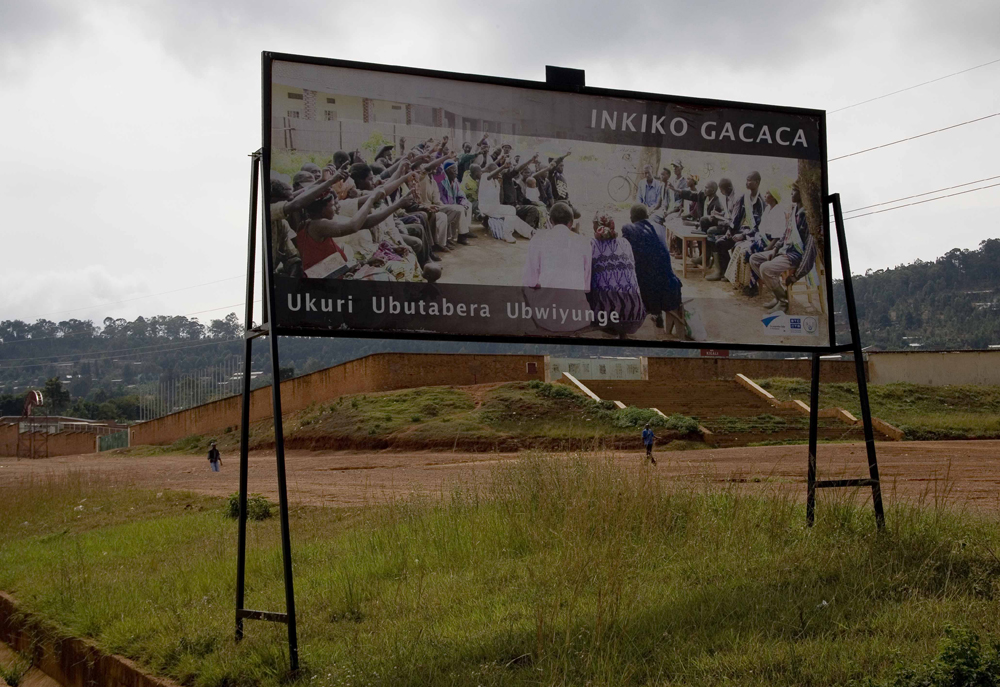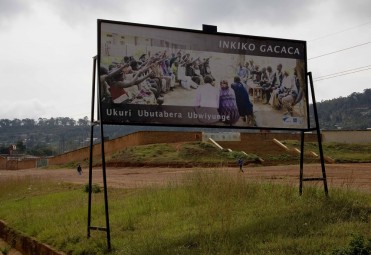
Expedite Compensation of Genocide Survivors – Senators.
The New Times, 29th March 2016.
By Rodrigue Rwirahira
The Executive Secretary for the National Unity and Reconciliation Commission (NURC) appeared in senate on Monday to explain the commission’s role seeking solutions to social issues like reparations for Genocide survivors.
The summoning of the new commission boss, former City Mayor Fidele Ndayisaba was based on a recent report indicated that failure or delays in paying reparations was a major stumbling block to national unity and reconciliation process.
Ndayisaba appeared before the standing committee in charge of political affairs and good governance to explain further on concerns raised around disbursement of reparations as stated in the commission’s annual report of 2013/14.
Senators had raised a red flag on laxity and poor coordination of government institutions over claims of compensation for genocide survivors whose property was destroyed two decades ago but little efforts were made to ensure total justice is delivered.
According to a document distributed by the senate prior to the hearing, at least 8,445 cases adjudicated by Gacaca courts have not been executed, in terms of paying reparations to the victims.

The same document also states that 854 court bailiffs have completely failed to execute compensation judgements; 1,016 cases involved genocide convicts who deliberately refused to pay damages while 1,277 cases have incomplete files.
According to Jean Nepomuscene Sindikubwabo, the chairperson of the senatorial committee, delays in paying reparations greatly undermines the gains made in the unity and reconciliation process.
“Unity and reconciliation in this country is one of the strongest pillars and cannot be compromised, there is a need to engage all respective institutions especially, the Ministry of Justice; Ministry of Local Government, the National Commission for the fight against Genocide, among others, to expedite compensation,” he said.
This was echoed by his colleague Zephylin Kalimba who called on the commission to engage stakeholders in the field and set up drastic measures in the enforcement of judgments especially on convicts who have ability to pay.
“Institutional proper coordination is required if we are to administer fair justice to survivors, the number is very alarming and bailiffs are not handling it in a good manner and within due course,” added senator Kalimba.
Responding to the issues raised, the commission officials stated that delayed compensations were mainly due to financial constraints, poor enforcement of judgment, amongst others despite efforts to ensure justice is delivered accordingly.
“In partnership with Ministry of Justice we have outlined guidelines to support local governments to track files, especially those whose facts are incomplete, this has started to bear fruits already.
“On the other hand people who are not willing to pay compensations will have to face the law, however, I understand the number in this particular case has reduced shortly after legal aid week that took place previously,” said Fidèle Ndayisaba.
Ndayisaba, who replaced Dr Jean Baptiste Habyalimana earlier in the year, stated that a special retreat for all stakeholders is being planned soon after the upcoming 22nd Genocide commemoration week, which will focus on delays in disbursing reparations for genocide survivors.
Habyalimana was named Rwanda’s ambassador to Congo-Brazzaville.
